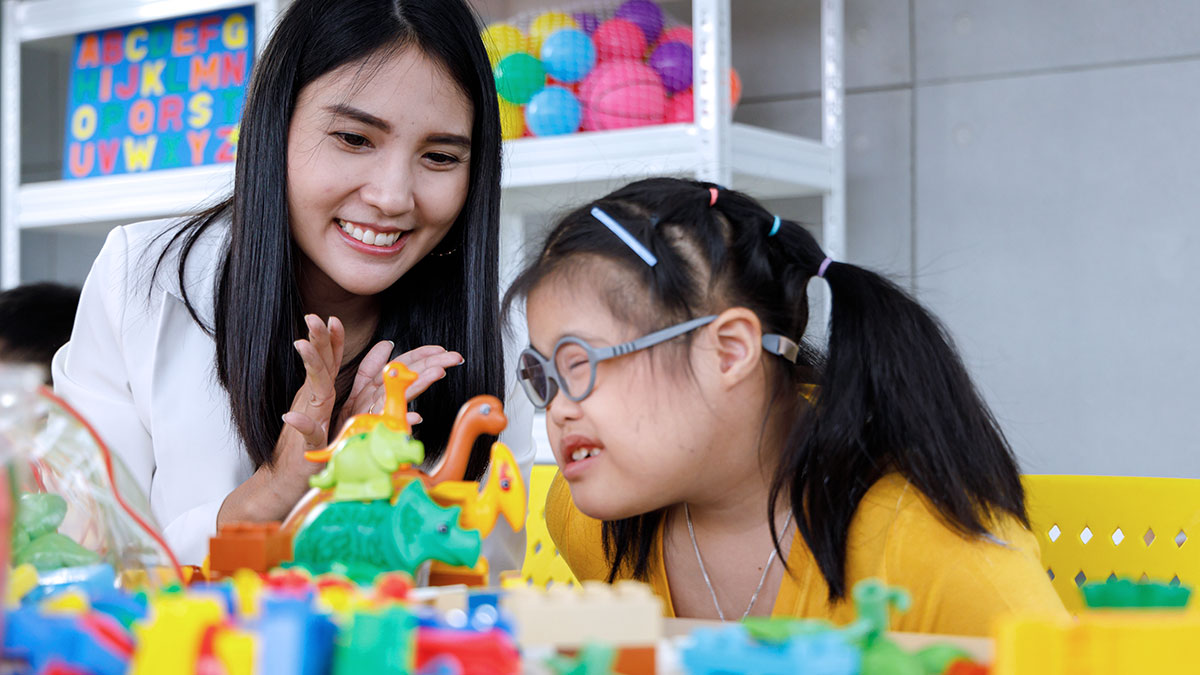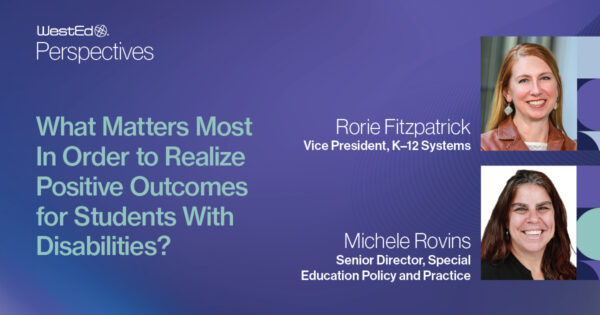When, why, and how should educators provide instruction and intervention to multilingual learners and when should educators begin the complex process of determining whether a multilingual learner has a disability?
We design professional learning and coaching experiences to support practitioners in identifying and meeting these complex needs using a culturally and linguistically aligned Multi-Tiered System of Supports (MTSS) for multilingual learners framework to inform practitioners in the pre-referral, referral, IEP development, and specially designed instruction practices to support dually identified students.
How We Help
You will learn research-based strategies for tailoring instruction for dually identified students—and connect your knowledge and skills with your existing school and district improvement initiatives.
Through our partnership, you will learn
- The role of culturally aligned Multi-Tiered Systems of Supports (MTSS) to inform appropriate referrals for special education evaluation for multilingual learners
- Tiered instruction and intervention approaches that support both English language learning and skill development within a multi-tiered prevention system
- Best practices for special education evaluation of multilingual learners
- Process steps for developing linguistically appropriate goals and objectives for multilingual learners with disabilities
- Collaborative instructional practices aligned with the High-Leverage Practices for Students with Disabilities that meet the needs of students at the intersection of disability and multilingualism
We provide onsite professional development, including two- to three-day professional learning series or customizing year-long supports. Our online opportunities include annual virtual summits held each summer, customized professional learning, and a yearlong virtual professional learning network subscription.
Service Delivery
- Online, onsite, or hybrid
Who Will Benefit
- Site and district administrators
- Special Education and English Language Development administrators
- Instructional coaches
- English Language Development specialists
- Intervention specialists
- School Psychologists/Diagnosticians
- General Education, ELD, and Special Education practitioners

Ready to develop and implement instruction that addresses needs of multilingual learners with disabilities?
Connect with a WestEd expert.
"*" indicates required fields
This training identified the importance of collaboration among the different professionals involved in serving MLSWD students and gathering multiple sources of data in an asset-oriented approach.
— Elizabeth Baker
English Learner Coordinator
Tantasqua/Union 61 School District, Fiskdale, MA
Featured Expert
Silvia DeRuvo
Gabriela Mottesi
Cerelle Morrow
Yessy Medina
Connecting Research With Practice
Built upon the MTSS for ELs framework, practitioners apply skills necessary for providing instruction, intervention, and data-based decision-making when determining the need for a special education referral. Special education evaluation utilizes best practices identified through IDEA for multilingual learners suspected of having a disability and the tools and resources developed by the U.S. DOE, English Learner Toolkit, and joint guidance from the U.S. Department of Justice and U.S. DOE in a Dear Colleague Letter addressing the rights of English learners and English learners with disabilities.
Instructional practices focus on quality interactions, a Culturally Responsive UDL Approach, and culturally and linguistically aligned practices with an emphasis on the High-Leverage Practices for Students with Disabilities.















